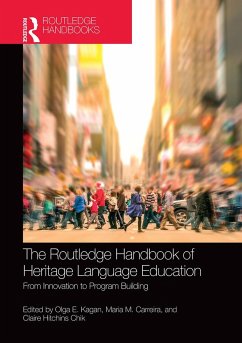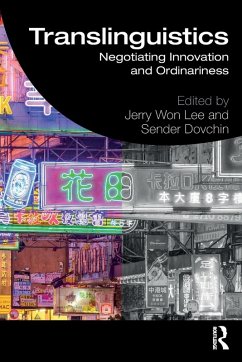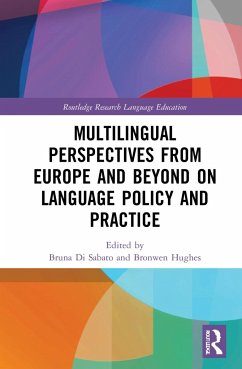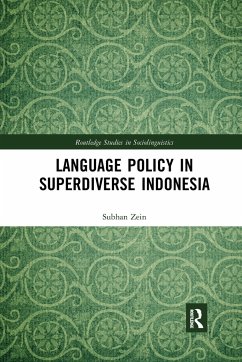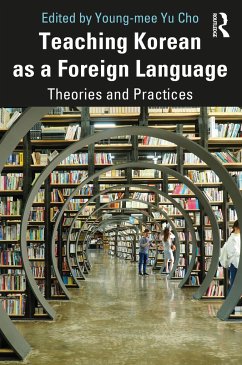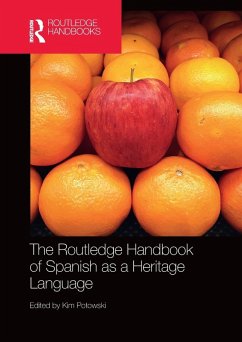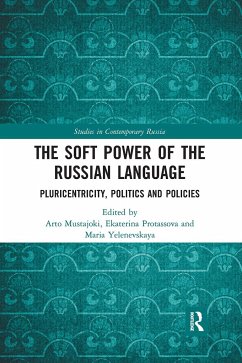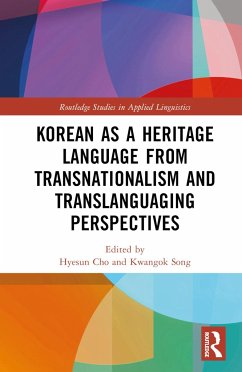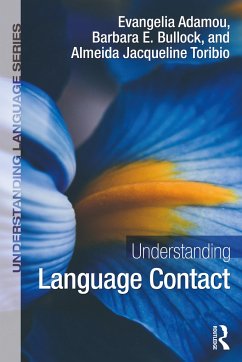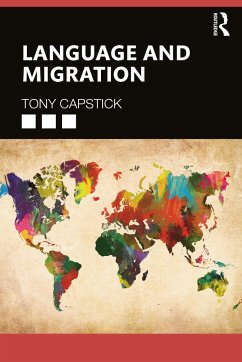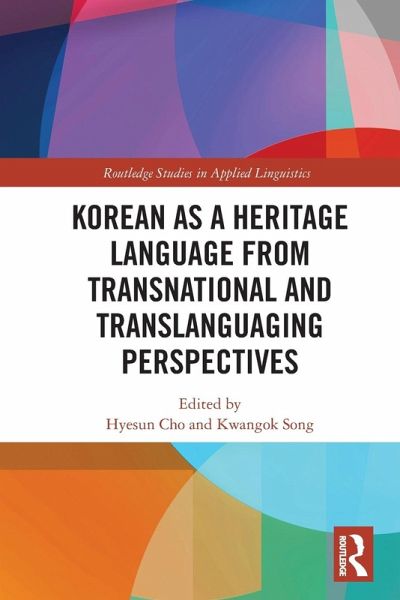
Korean as a Heritage Language from Transnational and Translanguaging Perspectives
Versandkostenfrei!
Versandfertig in 6-10 Tagen
43,99 €
inkl. MwSt.

PAYBACK Punkte
22 °P sammeln!
This collection critically reflects on the state-of-the-art research on Korean-as-a-heritage-language (KHL) teaching and learning, centering KHL as an object of empirical inquiry by offering multiple perspectives on its practices and directions for further research.The volume expands prevailing notions of transnationalism and translanguaging by providing insights into the ways contemporary Korean immigrant and transnational families and individuals maintain their heritage language to participate in literary practices across borders. Experts from across the globe explore heritage language and l...
This collection critically reflects on the state-of-the-art research on Korean-as-a-heritage-language (KHL) teaching and learning, centering KHL as an object of empirical inquiry by offering multiple perspectives on its practices and directions for further research.
The volume expands prevailing notions of transnationalism and translanguaging by providing insights into the ways contemporary Korean immigrant and transnational families and individuals maintain their heritage language to participate in literary practices across borders. Experts from across the globe explore heritage language and literacy practices in Korean immigrant communities in varied geographic and educational contexts. In showcasing a myriad of perspectives across KHL research, the collection addresses such key questions as how heritage language learners' literacy practices impact their identities, how their families support KHL development at home, and what challenges and opportunities stakeholders need to consider in KHL education and in turn, heritage language education, more broadly.
This book will be of interest to families, teachers, scholars, and language program administrators in Korean language education, heritage language education, applied linguistics, and bilingual education.
The volume expands prevailing notions of transnationalism and translanguaging by providing insights into the ways contemporary Korean immigrant and transnational families and individuals maintain their heritage language to participate in literary practices across borders. Experts from across the globe explore heritage language and literacy practices in Korean immigrant communities in varied geographic and educational contexts. In showcasing a myriad of perspectives across KHL research, the collection addresses such key questions as how heritage language learners' literacy practices impact their identities, how their families support KHL development at home, and what challenges and opportunities stakeholders need to consider in KHL education and in turn, heritage language education, more broadly.
This book will be of interest to families, teachers, scholars, and language program administrators in Korean language education, heritage language education, applied linguistics, and bilingual education.





